Una campagna di Casa Capra
ContattiRecupera la tua password
Inserisci il tuo indirizzo email: ti invieremo una nuova password, che potrai cambiare dopo il primo accesso.
Password inviata
Controlla la tua casella email: ti abbiamo inviato un messaggio con la tua nuova password.
Potrai modificarla una volta effettuato il login.
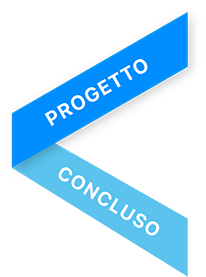
Bigoli Bang
- Raccolti € 10.463,00
- Sostenitori 214
- Scadenza Terminato
- Modalità Raccogli tutto Informazioni
Raccogli tutto
Il tuo contributo servirà a sostenere un progetto ambizioso. Scegli la ricompensa o la somma con cui vuoi sostenerlo e seleziona il metodo di pagamento che preferisci tra quelli disponibili. Ti ricordiamo che il progettista è il responsabile della campagna e dell'adempimento delle promesse fatte ai sostenitori; sarà sua premura informarti circa come verranno gestiti i fondi raccolti, anche se l'obiettivo non sarà stato completamente raggiunto. Le ricompense promesse sono comunque garantite dall’autore.
- Categoria Film & corti
Il Progetto
English version below

Un film di Jérôme Walter Gueguen
Lungometraggio di fantascienza in lingua italiana
Attualmente in fase di post-produzione.

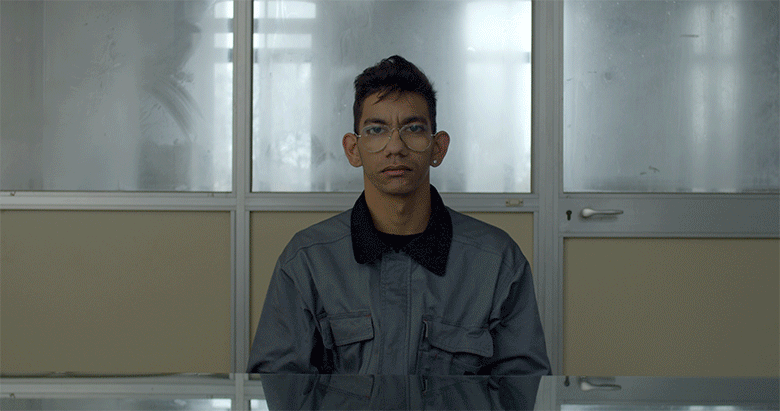
In un centro di detenzione per viaggiatori spazio-temporali, un astrofisico e la sua squadra sono combattuti tra la paura di modificare il loro presente, liberando i viaggiatori del futuro, e l’empatia nei confronti di una lontana discendenza. L'arrivo di un misterioso ispettore e la sparizione di una viaggiatrice rivoluzionano le sorti del centro e dei suoi ospiti.

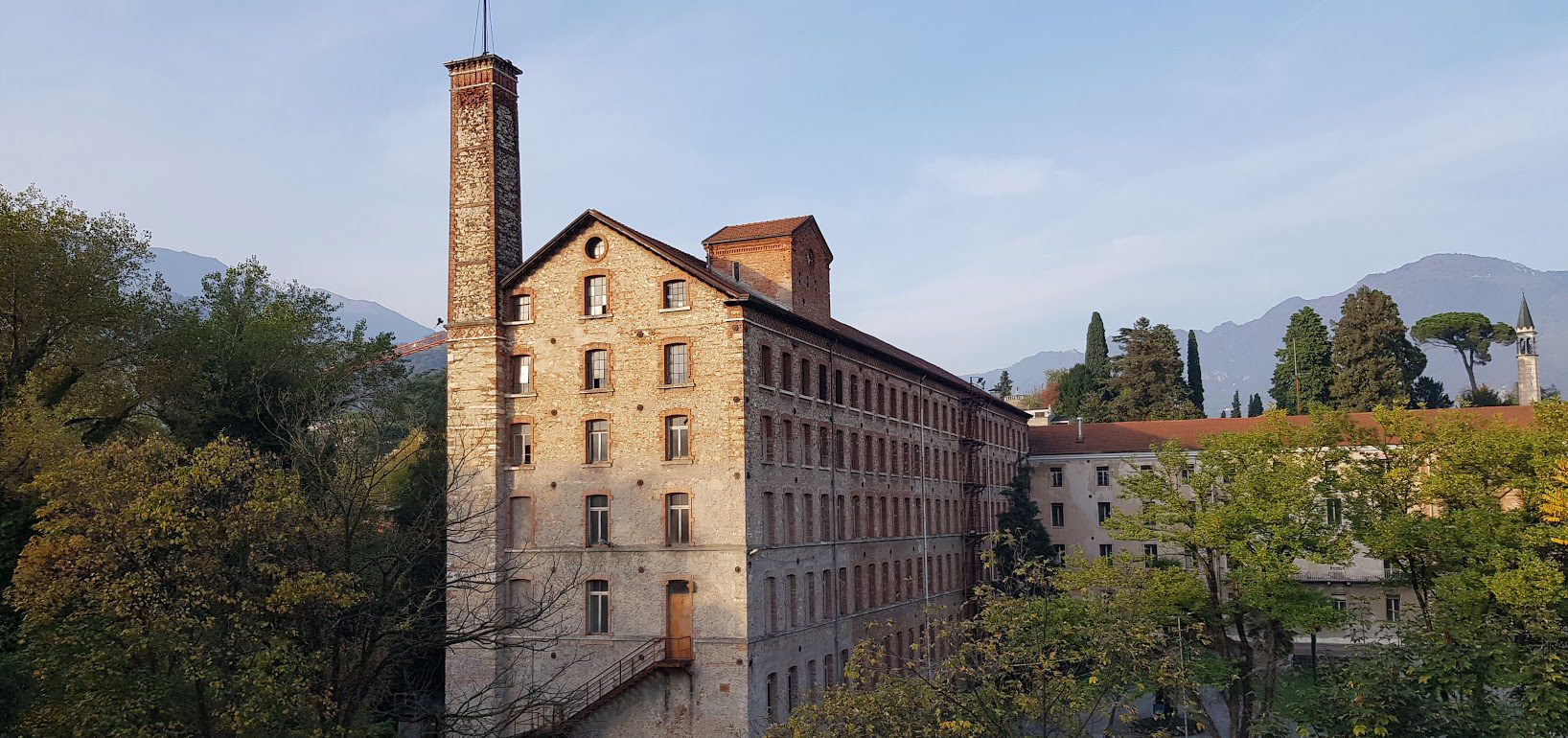
Il film è stato girato interamente a Schio (Vicenza) all’interno della Fabbrica Alta e nel suo Giardino Jacquard.
Edificio di archeologia industriale eretto nel 1862 da Alessandro Rossi, la Fabbrica Alta rappresenta uno dei principali simboli della prima industrializzazione italiana. Prima dell'avvento della Fiat la Lanerossi - con la sua produzione tessile - era la più grande industria italiana.

L'obiettivo è raggiungere 25.000€ per la realizzazione delle ultime riprese e della post-produzione.
Il completamento del film è previsto per gennaio 2021.
Nel mese di marzo 2021 sono in programma una serie di proiezioni del film riservate ai sostenitori del crowdfunding, presso il Cinema Pasubio di Schio (VI), già coinvolto nel progetto. In alternativa sarà possibile - sostenendo il progetto attraverso il crowdfunding - vedere il film in streaming.
Nel corso del 2021 porteremo Bigoli Bang nei festival cinematografici internazionali ed italiani. In seguito - tra fine 2021 e inizio 2022 - la distribuzione in sala avverrà attraverso proiezioni-evento alla presenza del regista.
Dove andranno le donazioni?
Le donazioni ci permetteranno di sostenere le spese necessarie per la post-produzione (montaggio, sonorizzazione, color grading, mix), per la logistica delle ultime riprese e per la promozione del film Bigoli Bang - La teoria delle stringhe spezzate.
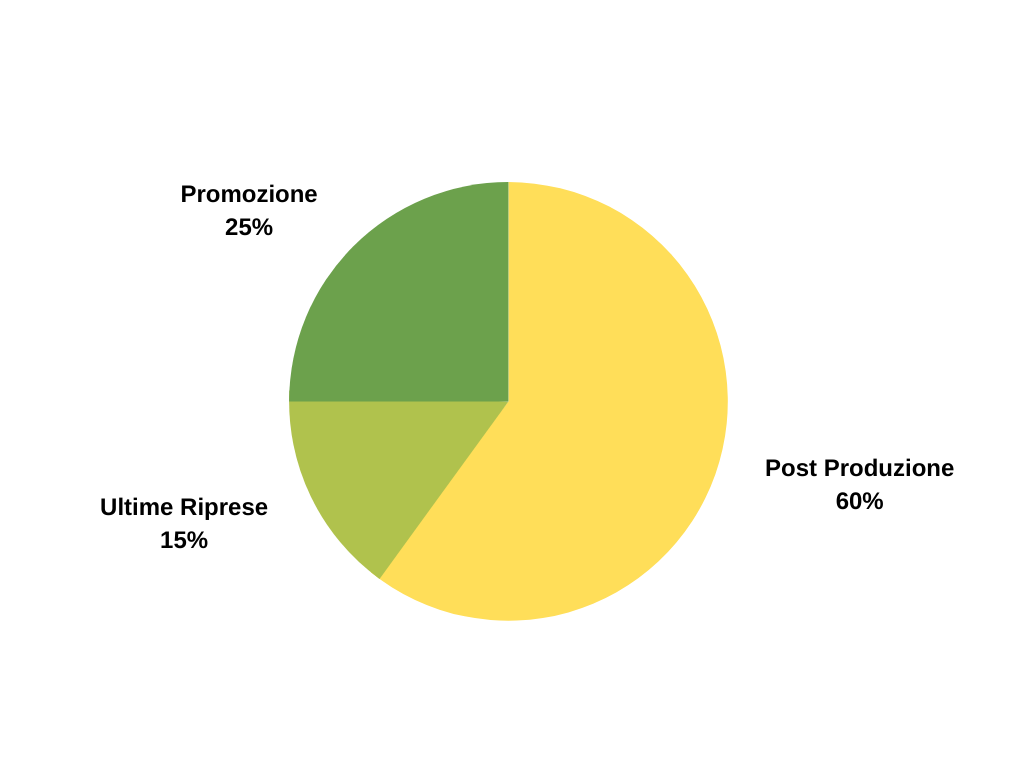

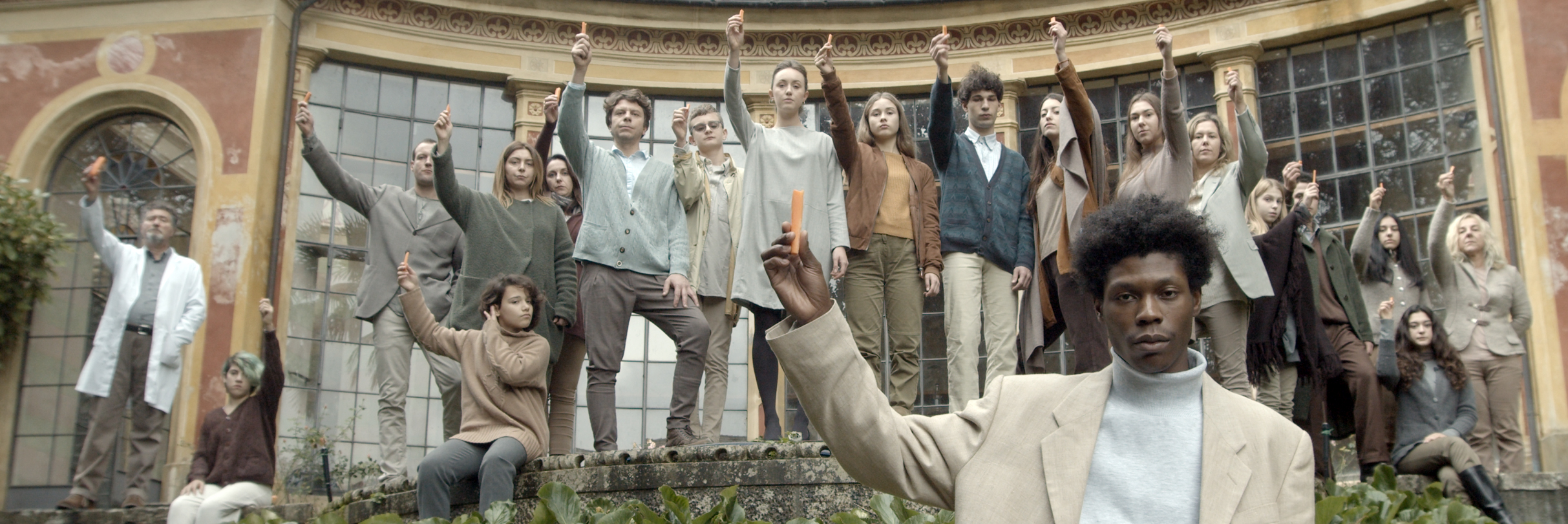
Tutti i personaggi del film, a parte tre attori internazionali, sono interpretati da abitanti di Schio e dintorni. Prima delle riprese il regista ha tenuto numerose sessioni di formazione per gli attori non professionisti, in modo tale da creare la confidenza necessaria per interpretare i personaggi di fronte alla cinepresa.

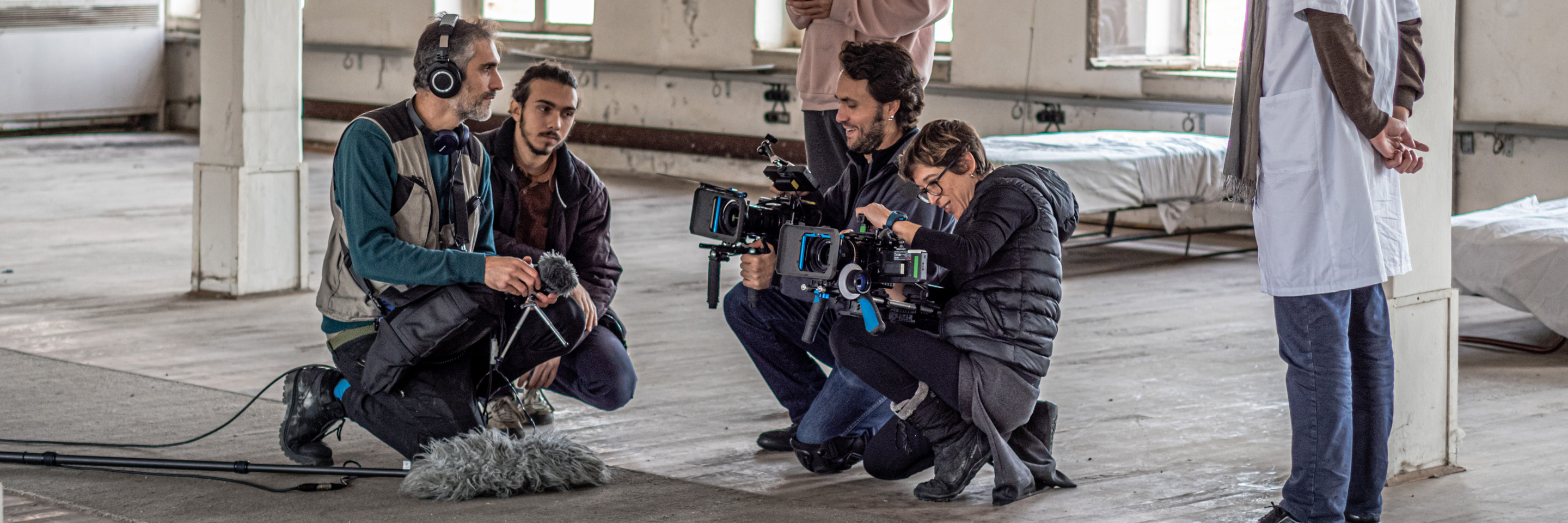
Il regista ha portato con sé una squadra internazionale di professionisti. Tra questi gli attori inglesi Edward J. Bentley e Dave Phillips, il direttore della fotografia spagnolo David Palacios, l’operatrice di camera Leyre Mira e il sound engineer Claudio Curciotti. Il resto della troupe è invece stata individuata tra professionisti del territorio. Le riprese sono state inoltre occasione di formazione per giovani filmmaker e attori locali, che hanno potuto accrescere le proprie competenze rispetto ai diversi mestieri del cinema. Nasce ufficialmente da questa esperienza Bigoli Pictures.

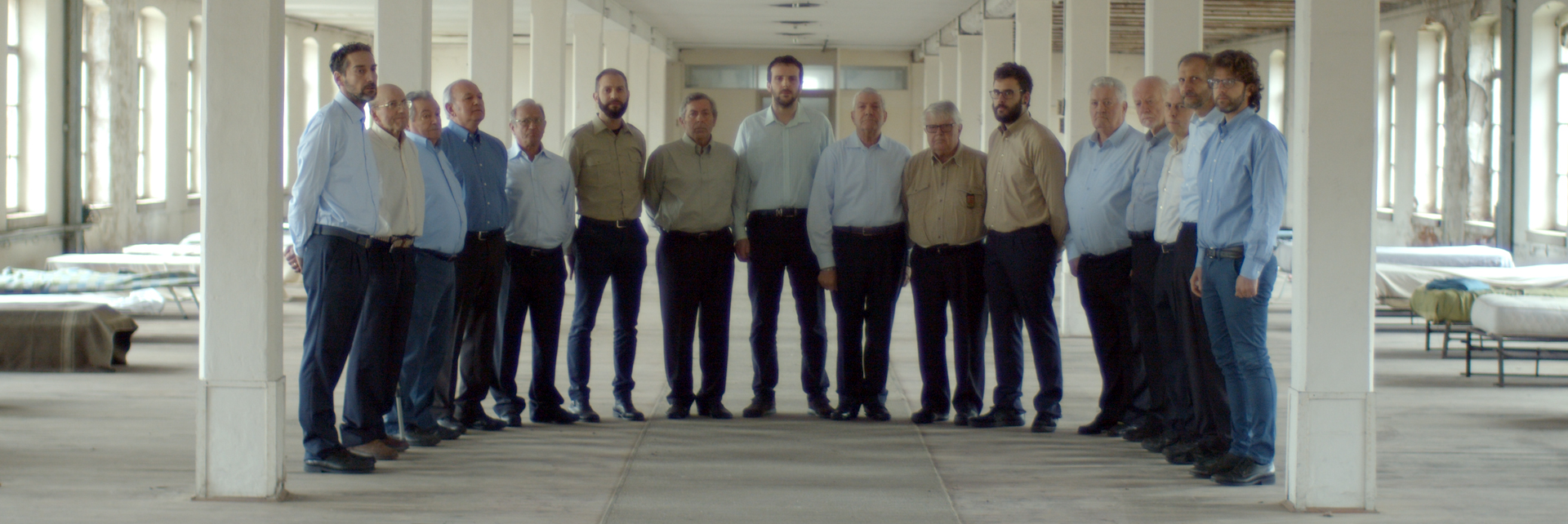
La musica del film è cantata, senza l'uso di nessuno strumento, e racchiude brani eseguiti e registrati dal vivo durante le riprese. Nel repertorio figurano canti tradizionali degli Alpini. L’effetto è straniante: questi canti stridono con la condizione di clandestinità dei viaggiatori del tempo. La canzone nel trailer - Benia Calastoria di Bepi De Marzi, cantata dal Coro Sojo Rosso - racconta il ritorno di un uomo alla sua casa dopo anni di lavoro in Belgio. Insieme agli attori sono stati eseguiti anche dei cori elettro-acustici. Uno, ad esempio, riprende il suono dell'aspirapolvere, elemento ricorrente nel corso del film.

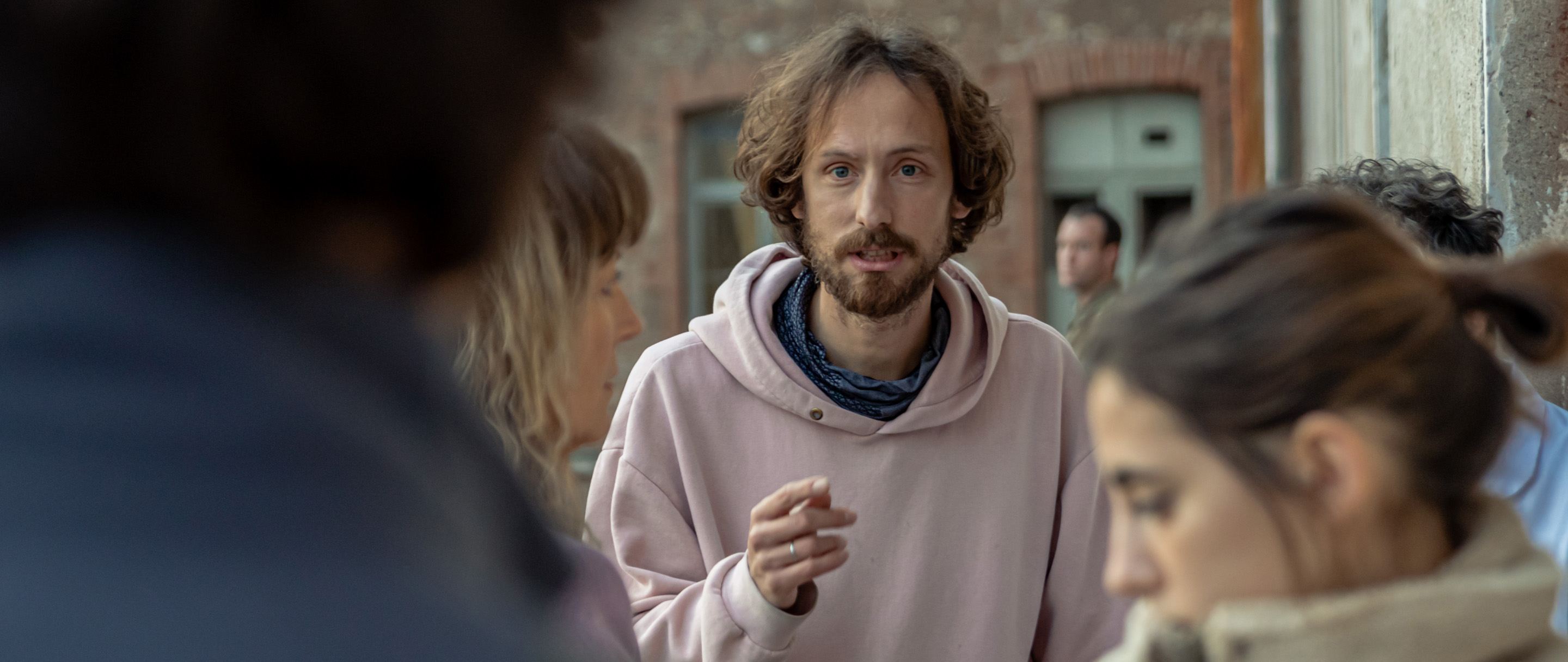
Jérôme Walter Gueguen è regista, attore e sceneggiatore
Nato a Parigi, residente a Madrid. Jérôme è artista, regista e attore. Autore di film, cortometraggi e video musicali e docente all'Università di Shanghai e di Parigi 3is. Appassionato di natura e amante della vita all'aria aperta, Jérôme predilige le riprese in esterna in luoghi spettacolari, usando soltanto la luce naturale. Lavora con un mix di attori professionisti e non professionisti, insegnando e animando seminari di interpretazione.
Dopo aver conseguito il diploma di cinema a Parigi nel 2008, Jérôme si è trasferito in Italia per unirsi al pluripremiato collettivo artistico Caucaso Factory di Bologna, dando vita a musica, spettacoli, fotografia e cortometraggi. Il suo primo lungometraggio indipendente, Le sedie di Dio (2014) è stato selezionato al Milano Film Festival e proiettato nelle cineteche di Milano e Roma.
Nel 2019, Jérôme ha ottenuto una residenza finanziata dalla Regione Veneto e dall'Unione Europea per la realizzazione di un film all'interno di una fabbrica abbandonata nel XIX secolo secolo, la Fabbrica Alta di Schio. Da qui nasce il progetto Bigoli Bang: la teoria delle stringhe spezzate , in cui Jérôme interpreta uno dei personaggi: Bip.
Note di regia - Utilizzare la fantascienza per raccontare un tema di attualità...
I viaggiatori provenienti dal futuro, una volta arrivati nel presente, sono confinati in condizioni di precarietà in due dormitori e in un giardino. Nel corso del film si scopre che scappano da un futuro distopico, in cerca di una migliore condizione di vita. Ma il presente non è come se lo aspettavano.
I viaggiatori interagiscono con i dipendenti del centro di accoglienza, muovendosi tra l'ufficio della direttrice, la sala degli arrivi (dove sbarcano), l'infermeria, la mensa, le stanze per gli interrogatori e il giardino. In un ambiente claustrofobico e oppressivo emergono le storie dei rifugiati e i sensi di colpa dei loro carcerieri. Una viaggiatrice in particolare attira le attenzioni di un misterioso ispettore (che si scoprirà venire dal futuro), incaricato di ucciderla per evitare che il futuro cambi...
Attraverso questi elementi di finzione, ho costruito un mondo surreale, che restituisce riflessioni su un importante tema di attualità in modo metaforico e altamente cinematografico.
Jérôme Walter Gueguen

Non si tratta solamente di un libro sul film Bigoli Bang ma piuttosto il confronto di vari artisti con un edificio storico importante. Come reinventare un mondo all'interno della Fabbrica Alta, rispettando la sua storia ma guardando anche verso il futuro e il subconscio.
Vivete le avventure di un regista francese perso nella Fabbrica Alta attraverso il diario personale di Jérôme e i vari testi di attori e autori della produzione realizzati mentre stavano in Fabbrica. Il tutto sarà accompagnato dalle fotografie realizzate dai vari fotografi scledensi che hanno avuto libertà totale di scattare durante le riprese sul set di Bigoli Bang. Il libro è realizzato dalla casa editrice Listlab è sarà sia in lingua italiana che inglese.
Con testi di Jérôme Walter Gueguen, Saverio Bonato, del poeta Filippo Balestra e altri autori.
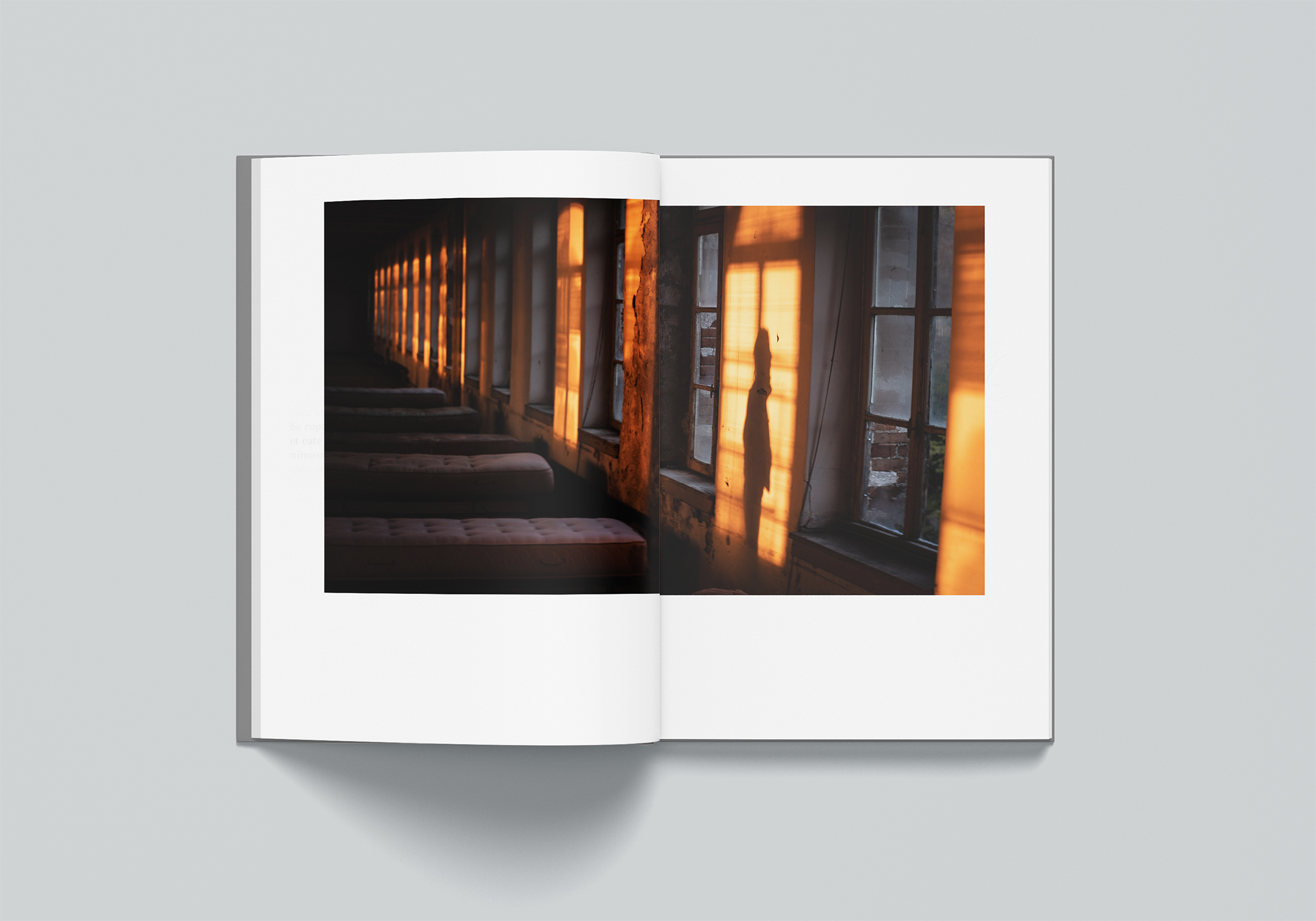
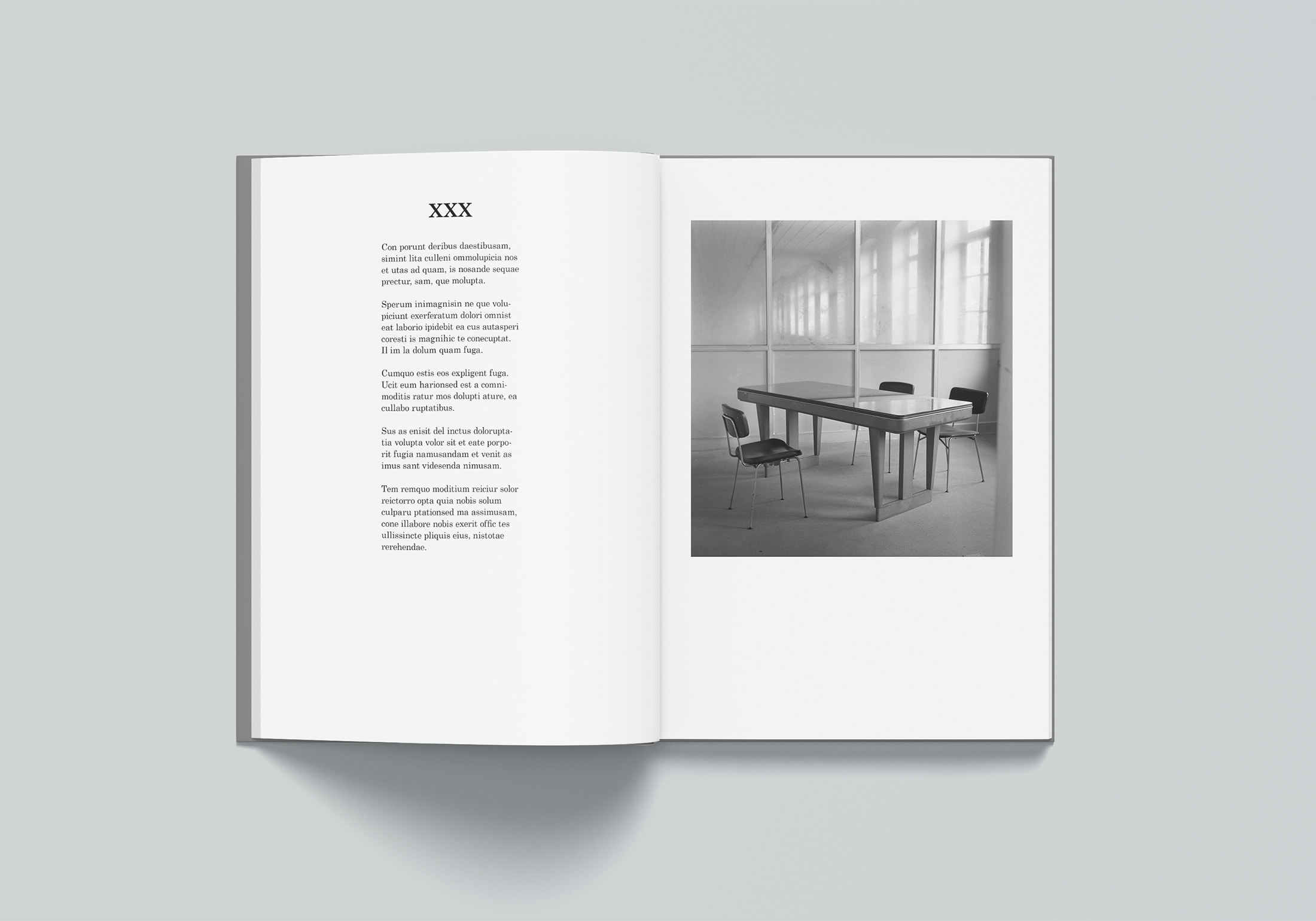
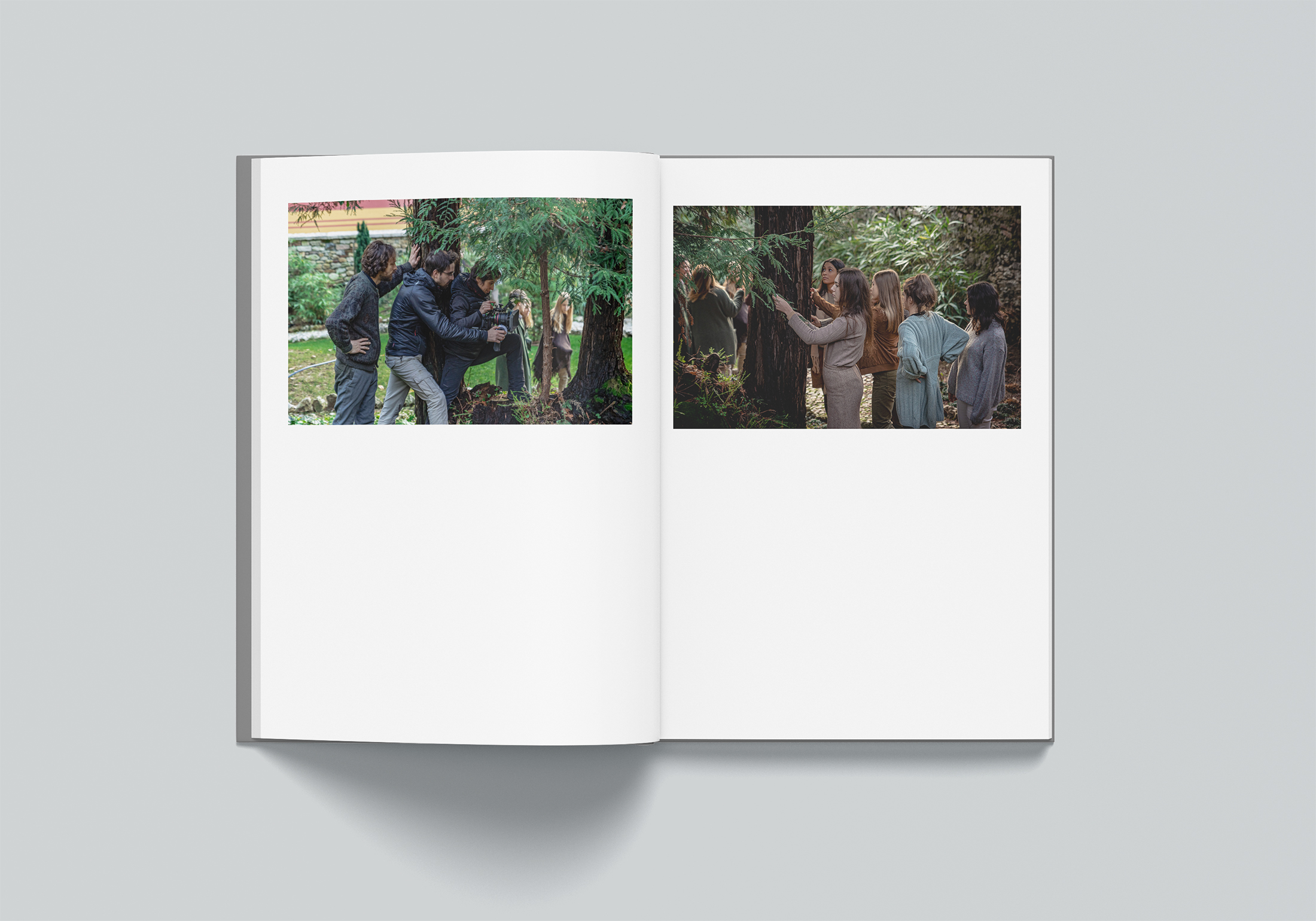
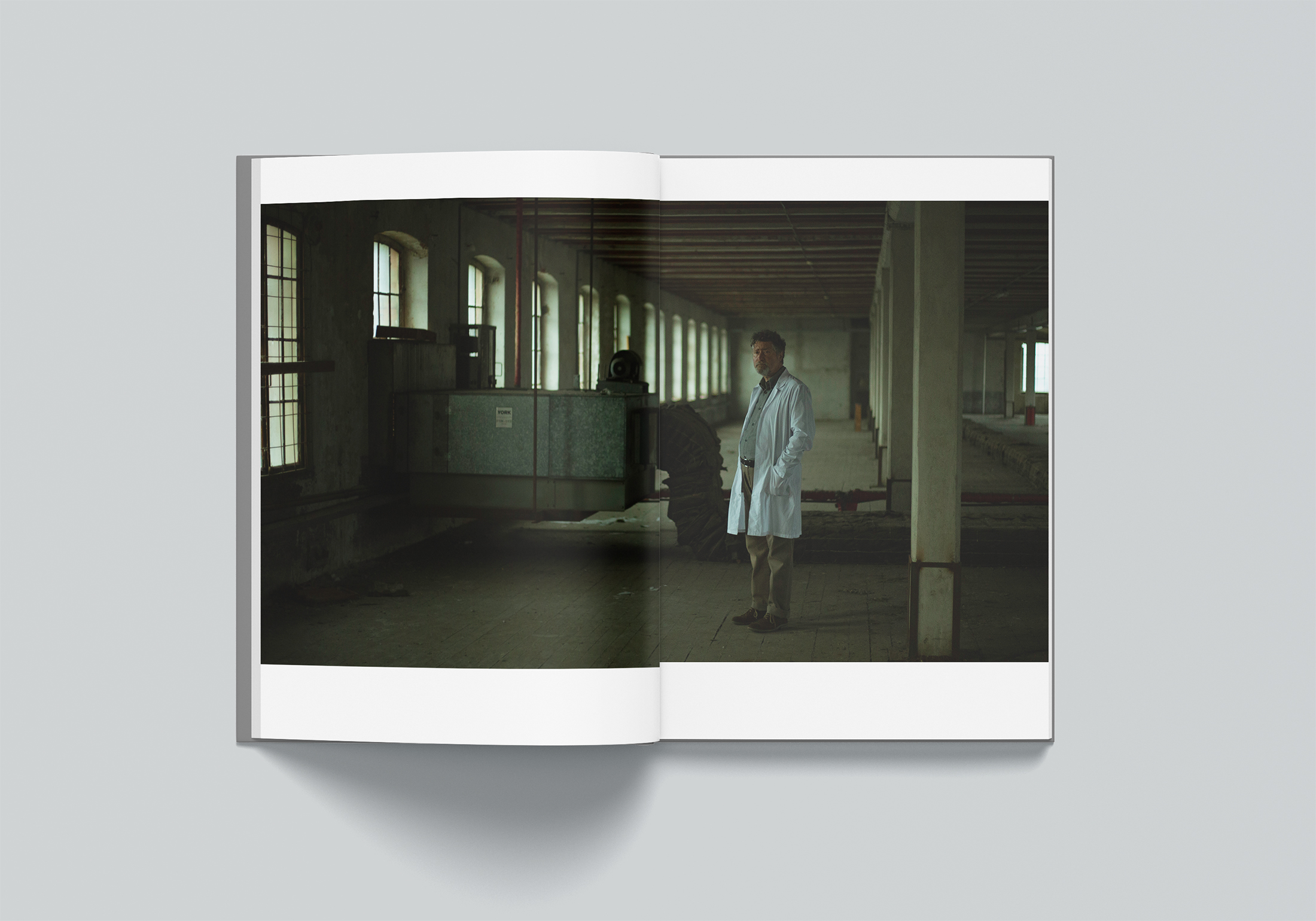

Aplysia nasce nel 2007 come una rete di professionisti dell’audiovisivo coordinati dal project manager e produttore Giuseppe Petruzzellis. Dal 2020 Aplysia è registrata come impresa di produzione cinematografica. Nel corso degli anni sono numerosi i progetti realizzati, con collaborazioni e co-produzioni a livello nazionale ed internazionale. Il focus principale è sul documentario d’autore e su tematiche antropologiche, sociali, artistiche ed ecologiche. Parallelamente sono stati realizzati progetti nel settore istituzionale e commerciale, videoclip musicali, cortometraggi, video-installazioni, serie televisive, lungometraggi di finzione e percorsi di formazione. In ambito cinematografico sono oltre 60 le produzioni realizzate in proprio o in collaborazione, tra cui 16 lungometraggi. Numerosi di questi lavori hanno ottenuto premi e riconoscimenti in festival nazionali ed internazionali (Mostra del Cinema di Venezia, Sheffield Doc Fest, Torino Film Festival, CPH:DOX, Visions Du Reel, Cinema du Reel, Hors Pistes - Centre Pompidou), approdando anche a distribuzioni in sala e televisive.

Bigoli Pictures è un team di produttori indipendenti, attori, creativi e scrittori, che sviluppano fiction e narrativa per film e televisione. Composto dal regista Jérôme Walter Gueguen, dagli attori inglesi Edward J. Bentley e Dave Philipps, del direttore della fotografia spagnolo David Palacios e dall’operatrice di camera Leyre Mira. Abbiamo sede a Barcellona e Madrid. Creiamo altri mondi e scriviamo sceneggiature per film che produciamo noi stessi o che offriamo ad altre società di produzione. Crediamo che l'immaginazione sia uno strumento magico che deve essere allenato e usato con passione e divertimento. La fantasia è la nostra etica.
Casa Capra è uno spazio espositivo indipendente di ricerca e produzione artistica a cura di Saverio Bonato situato nel quartiere di Magrè di Schio, immerso tra i luoghi del quotidiano: tra l’edicola, l’alimentari e il bar del paese. La posizione non è tra le più convenzionali, ma si pone l’obiettivo di trovare un terreno diverso, uno spazio tendenzialmente fuori dagli ordinari circuiti dell’arte delle grandi città per raccontare nuove storie attraverso i lavori degli stessi artisti che ne fanno parte.
A partire dal 2020 è anche Associazione Culturale Conci legata al supporto tecnico per le produzioni editoriali e audiovisive con la partecipazione al suo interno di diverse professionalità per diversi settori.
Bigoli Bang: la teoria delle stringhe spezzate nasce all'interno del progetto FabricAltra, che lavora sul tema dell’innovazione sociale in chiave di rigenerazione territoriale nell’area della prima industrializzazione
veneta legata al settore tessile.
L’iniziativa progettuale già concretizzatasi in un programma di attività culturali/artistiche site-specific continua a portare avanti l’obiettivo di lavorare sulla visibilità dell’edificio, sulla rielaborazione di una memoria condivisa, sulla verifica di nuovi scenari di riutilizzo/non riutilizzo consapevole, attraverso un percorso di riappropriazione del sito in qualità di bene pubblico, supportato da strumenti legati a pratiche artistiche, installazioni audio e video, narrazione teatrale.
La finalità è quella di proseguire il percorso di rigenerazione culturale di Fabbrica Alta, con il coinvolgimento in residenza di artisti di livello internazionale attorno a cui attivare iniziative di formazione e animazione del ricco tessuto associativo socio-culturale già operante sul territorio.
Nuovi gli attori in campo per lavorare sulla visibilità dell’edificio, affinché lo spazio della Fabbrica diventi un luogo da vivere, di cui riappropriarsi e in cui rielaborare una memoria storica collettiva che sia stimolo per il futuro e non cristallizzazione del passato.

SPONSOR
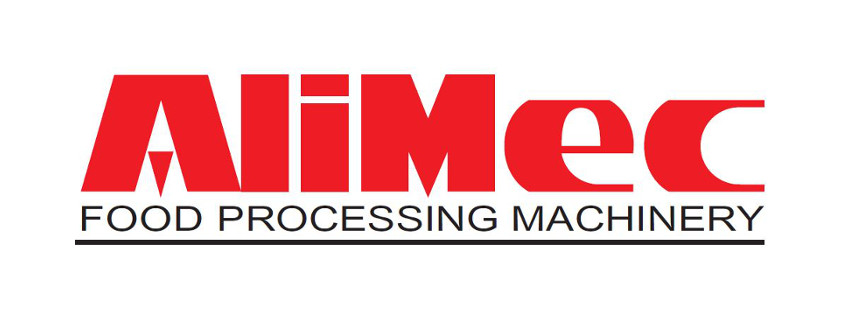

A film by Jérôme Walter Gueguen.
Feature lenght sci-fi movie.
Italian, with English and French subtitles.
Currently in post-production.
LOGLINE
In a detention center designed to imprison time-travellers, an astrophysics and his team are torn by the fear of changing their present, releasing the travellers coming from the future, and their empathy towards their far descendants. The arrival of a mysterious inspector and the disappearence of a female traveller revolutionize the fate of the detention center and of its guests.
LOCATION
The film was shot entirely in Schio (Vicenza), in the old Lanerossi textile factory, La Fabricca Alta, and its Jacquard Garden.This industrial building was built in 1862 by Alessandro Rossi and is one of the first symbols of Italian industrialization.
TEAM
The director brought his international team with him to Schio: English actors Edward J. Bentley and Dave Phillips, Spanish director of photography David Palacios, camera operator Leyre Mira and sound engineer Claudio Curciotti. The rest of the film crew is from Veneto Region. The film shooting gave the opportunity to train local actors and young members of the crew, helping them to learn the art of filmmaking.
CHARACTERS
Except for three international actors, all of the characters in the film are played by local people from Schio and from the surrounding areas. Before the film shooting, the director held a series of acting courses for the cast who had not acted before, in order to build their self-confidence and help them interpret their characters in front of the camera.
MUSIC
The music of the film will be sung, without musical accompaniment, by different choirs. In particular, there are traditional songs from the Alpini that clash with the clandestine state of being of the time-travellers. The song in the trailer in particular - Benia Calastoria by Bepi De Marzi, performed by the choir Coro Sojo Rosso - tells the story of a man who returns home after years of vicissitudes in Belgium. Together with the actors, electro-acoustic choruses were recorded too; one of the songs features the sound of the vacuum cleaner, a recurring theme throughout the film.
THE DIRECTOR
Born in Paris, Jérôme Walter Gueguen currently lives in Madrid. With a strong passion for nature and the outdoors, Jerome has a preference for working in spectacular locations working primarily with natural light. He works with a mix of professional and first-time actors, often teaching and running workshops as part and parcel of his filmmaking process.
After completing his Cinematography degree in Paris in 2008, Jérôme moved to Italy to join the award-winning art collective, Caucaso Factory of Bologna, creating music, performance art, photography and short films. His first independent feature film; God’s Chairs, was selected at the 2014 Milan International Film Festival. In 2015 he created the scenography for the Cabaret Contemporary: Kraftwerk/L‘Homme Machine show which was performed in national theatres across France. He also works as an actor (La Unidad _ Dani de La Torre_2020), as a music video director and as a cinema teacher at Shanghai University and at Paris 3is.
DIRECTOR'S NOTES
Using science fiction to talk about a current issue...
Upon their arrival in the present, the travellers coming from the future are confined in cruel conditions in two droms and in a garden. Troughout the film we understand that they are fleeing from a dystopic future, looking for better life condition. But the prsent is not as they were expectiing.
The travellers interact with the workers of the detention center, moving around the directo's office, the arrival room (where they materialize themselves), the infirmary, the dining hall, the interrogatory rooms and the garden. In a claustrophobic and oppressive environment the stories of the refugees emerge as well as the feelings of guilt of their wardens. A female time-traveller attracts the attentions of a mysterious inspector (also coming from the future): he is ordered to kill her, to avoid the future from changing its path...
Through these fictional elements I have built a surreal world, thus creating an oppotunity to reflect on an important current theme in a metaphorical and highly cinematographic way.
Jérôme Walter Gueguen
THE PRODUCTION
Aplysia was born in 2007 as a network of audiovisual professionals coordinated by project manager and producer Giuseppe Petruzzellis. In 2020 Aplysia assumed the legal form of a Production Company. Over the years, numerous projects have been carried out, with collaborations and co-productions at national and international level. The main focus is on documentaries on anthropological, social, artistic and ecological issues. At the same time projects were carried out in the institutional and commercial sector, music videos, short films, video installations, TV series, fiction feature films and training courses. In the cinematographic field there are over 60 productions (in-house or co-produced), including 16 feature films. Numerous of these works have won prizes and awards in national and international festivals (Venice Film Festival, Sheffield Doc Fest, Turin Film Festival, CPH: DOX, Visions Du Reel, Cinema du Reel, Hors Pistes - Center Pompidou), also landing to theatrical and television distributions.
Bigoli Pictures
We are a team of independent producers, creative actors and writers, developing fiction and narrative for film and television. Creating other worlds and writing characters for films that we either produce ourselves or offer to other production companies. We believe imagination is a magical tool that has to be trained and used with passion and fun. Fantasy is our ethic.
Bigoli Pictures was born from a collaboration and friendship between directors/actors, Edward Joe Bentley and Jérôme Walter Gueguen who met on a directors’ training program in Spain in 2017. This meeting of minds found an immediate creative connection and after nearly two years of writing and development, many frustrating setbacks and little-to-no budget, they have put a team together and brought David Phillips on board as Production Assistant & 1st AD to help them shoot their first collaborative short film/pilot ‘Rain Machine’ which they shot in Galicia, in 2018.
Casa Capra is an independent exhibition space that was set up in 2018 as a research centre and art space. It is located in the Magrè di Schio district, in the heart of the town, next to the local newsagents, grocery stores and bars.
Rather than being a conventional art gallery, it offers artists a space outside the established, big-city art circuits, allowing them to tell new stories through the work of local artists who are part of the town itself.
In 2020 it also became a Cultural Association, providing technical support for both editorial and audiovisual productions, under Saverio Bonato´s artistic direction and with the participation of professionals from various different sectors of the art world.
FabricAltra
The Fabricaltra project intends to work on the theme of social innovation in terms of territorial regeneration in the area of the first Venetian industrialization linked to the textile sector.
The project initiative that has already materialized in a program of site-specific cultural / artistic activities continues to pursue the objective of working on the visibility of the building, on the reworking of a shared memory, on the verification of new scenarios of conscious reuse / non-reuse , through a path of re-appropriation of the site as a public good, supported by tools related to artistic practices, audio and video installations, theatrical narration.
The aim is to continue the process of cultural regeneration of Fabbrica Alta, with the involvement in residence of international level artists around which to activate training and animation initiatives of the rich socio-cultural associative fabric already operating in the area.
New actors in the field to work on the visibility of the building, so that the Factory space becomes a place to live, to regain possession of and rework a collective historical memory that is a stimulus for the future and not crystallization of the past.
THANKS FOR YOUR SUPPORT!
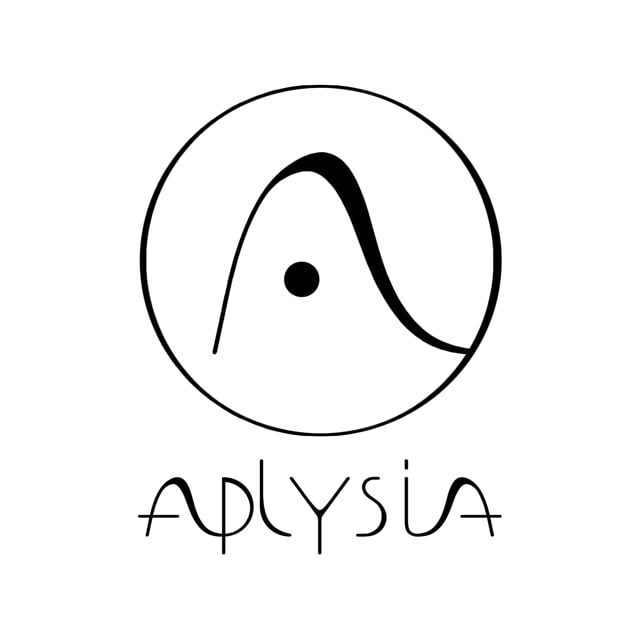


Commenti (53)